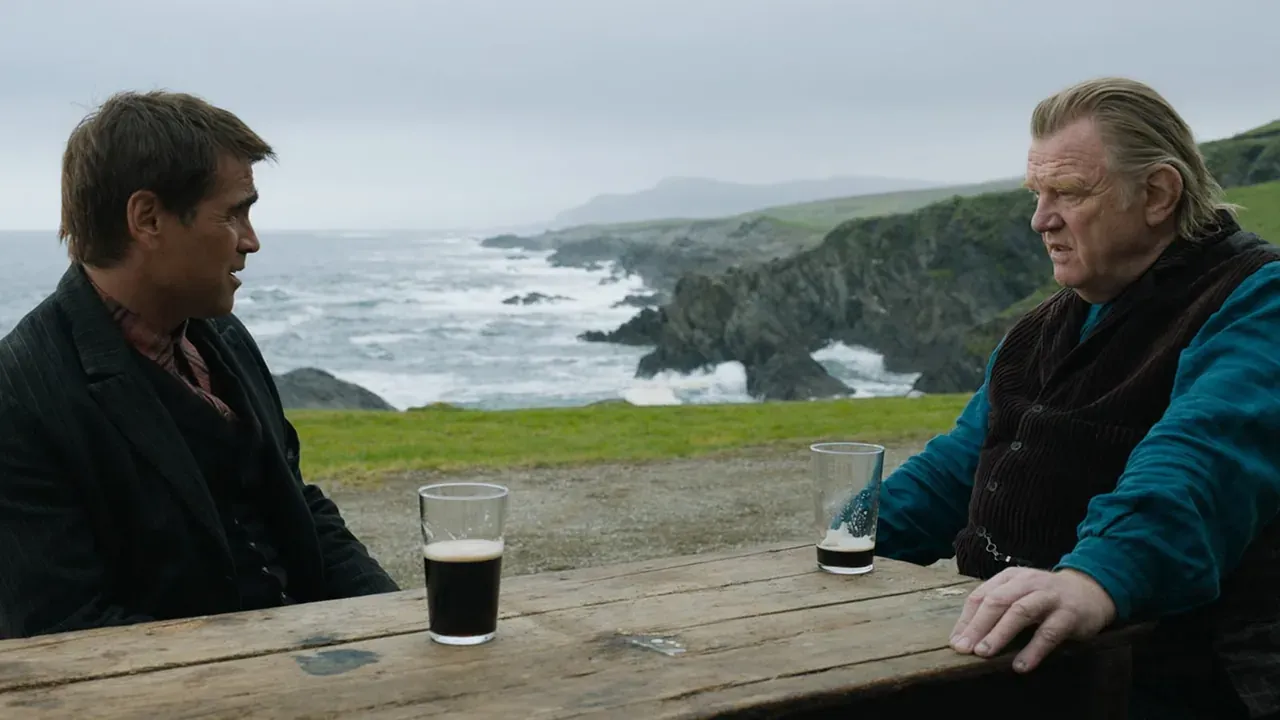A banshee is a figure in Irish folklore that heralds the death of a family member. They warn others by wailing and shrieking. To hear one is to know that something ominous is coming.
In Martin McDonagh’s masterful The Banshees of Inisherin, that wail is internal. It is the release that none of the men can articulate, even when all it takes is to let go.
Meanwhile, across the bay, the Irish Civil War rages on. By now, it’s almost a distraction to those on the island – a daily bit of news. Most can’t comprehend why they’re still going at it; others don’t care. The war exists in the distant roar of cannon fire – a keening for the entire country.
On the shore of Inisherin, Colm Doherty (Brendan Gleeson) no longer wants to be friends with his long-time companion Pádraic Súilleabháin (Colin Farrell). A devastated Pádraic pleads for an explanation. But there is none. At least, none that makes sense on a logical level. Which is the nature of friendships. They’re unspoken contracts built on emotion. Breaking them is a betrayal of something deeper we can’t understand.
McDonagh’s smart and lyrical script unravels in a way that is as insightful as it is devastating. The setup is simple and universal. Its backdrop provides both context and metaphor, though neither is strictly necessary. Melancholy is relatable whether you’re familiar with Irish history or not. In providing the barest details, McDonagh ensures accessibility. The island is the canvas, we project the rest.
It’s a film that merrily embraces fairy tale elements, enveloping us in a grim fable where good and bad are murky concepts at best. Colm is happy to torment himself both emotionally and physically, as he believes such acts do not harm others. Pádraic refuses to accept that his friend might not like him anymore – or may have never liked him – even as the alternative proves more devastating. Both are right and terribly wrong.
Farrell and Gleeson communicate their longing, remorse, and buried resentment masterfully. They’re men desperate to find a connection, but blind and obstinate to accept it when it is there. It’s that chase for elusive happiness that proves the greatest tragedy of it all.
I’ve seen The Banshees of Inisherin four times now. Each time I’ve come away feeling differently about its characters. Sometimes I’ll believe Pádraic the victim. Others, it’s Colm who I feel most affectionate about. Between them is Siobhán (Kerry Condon), who might be the only innocent in this whole matter.
But McDonagh doesn’t offer answers and, for once, that’s a good thing. Life rarely has clear moral judgment when it comes to matters of friendships. They are as binding as marriages but elusive like the passage of time. One minute they’re there, the next they’re gone, and all you have left is a vague understanding that something has changed.













